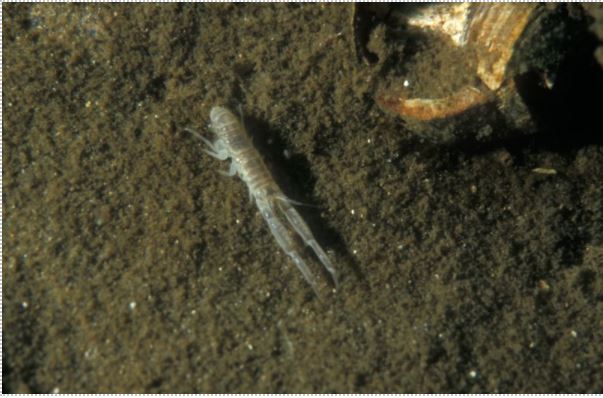Marine Biodiversity
Habitat: Estuary
Species: Mud Shrimp
Scientific name: Corophium volutator
Size: 4-11mm in length
Colour: Muddy brown
Distribution: Not widely recorded, current data spread around coast
Mud shrimp are usually buried in the sand in U-shaped burrows of mud flats, salt pools and brackish ditches. The Mud Shrimp can survive within a range of salinities from fully saline to almost freshwater. You may spot their burrows as small holes in the sand which are particularly obvious when there are many Mud Shrimp in a small area. The Mud Shrimp has a long slender body that is white in colour with brown markings. They can grow up to 11 mm in length and have seven pairs of segmented legs.
Mud Shrimp are an important food source for coastal birds such as Dunlin and Redshank and other shallow water animals such as Flounder, Shore Crabs and Brown Shrimp. In the summer months, during their breeding season, male Mud Shrimp will crawl to the surface of the mud, searching for females. Unfortunately, this breeding ritual makes them more vulnerable to predation!

